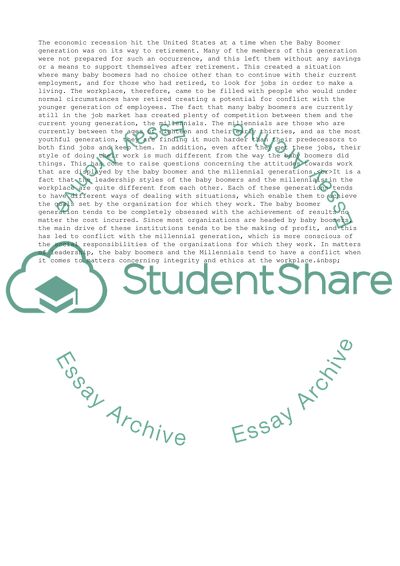Cite this document
(Comparing of Baby Boomer and Millennials Assignment, n.d.)
Comparing of Baby Boomer and Millennials Assignment. Retrieved from https://studentshare.org/management/1799668-commpare-the-attitudes-about-work-the-workplace-of-adults-in-the-generational-cohorts-known-and-the-baby-boomer-and-millennials
Comparing of Baby Boomer and Millennials Assignment. Retrieved from https://studentshare.org/management/1799668-commpare-the-attitudes-about-work-the-workplace-of-adults-in-the-generational-cohorts-known-and-the-baby-boomer-and-millennials
(Comparing of Baby Boomer and Millennials Assignment)
Comparing of Baby Boomer and Millennials Assignment. https://studentshare.org/management/1799668-commpare-the-attitudes-about-work-the-workplace-of-adults-in-the-generational-cohorts-known-and-the-baby-boomer-and-millennials.
Comparing of Baby Boomer and Millennials Assignment. https://studentshare.org/management/1799668-commpare-the-attitudes-about-work-the-workplace-of-adults-in-the-generational-cohorts-known-and-the-baby-boomer-and-millennials.
“Comparing of Baby Boomer and Millennials Assignment”, n.d. https://studentshare.org/management/1799668-commpare-the-attitudes-about-work-the-workplace-of-adults-in-the-generational-cohorts-known-and-the-baby-boomer-and-millennials.


